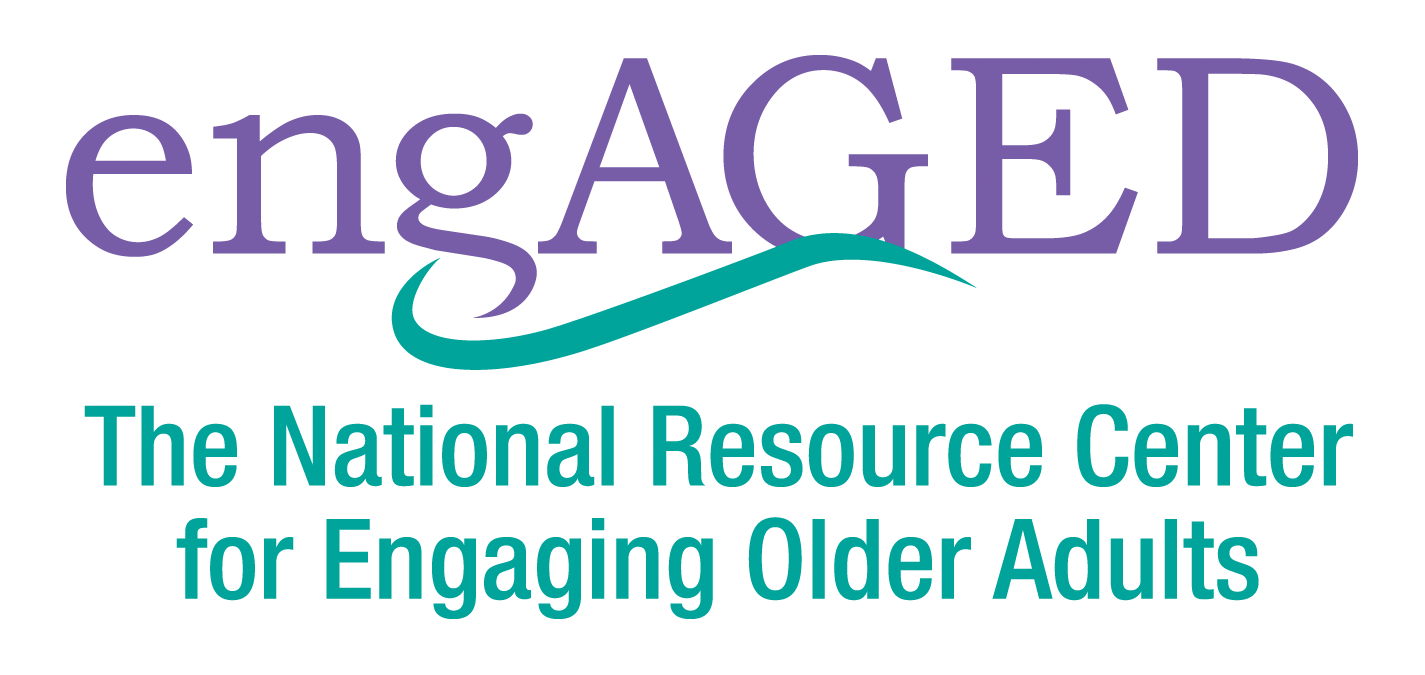The New Frontier: How Libraries Serve Older Audiences
To commemorate National Library Week, engAGED invited Fatima Perkins, Vice Chair, Reference Services Section-RUSA, American Library Association and Director, Community Outreach & Advocacy, Western Reserve Area Agency on Aging to write a blog post highlighting how the Aging Network can work with libraries to support the social engagement of older adults.
Is partnering with your local library on your to do list? It should be. Approximately eight in 10 American adults believe libraries offer reliable and trustworthy information and help them learn new things (Geiger, 2017). Americans also believe that public libraries help them grow, encourage them to focus on what matters in their lives and help with coping with a busy world (Geiger, 2017). In a time when 10,000 individuals turn 65 years of age every day, libraries are positioned to offer a frontier of engaging opportunities for older audiences.
Historically, many have viewed libraries as repositories for books. But libraries have evolved into focal points in the community that have expanded to meet the needs of their communities, offering opportunities for empowerment, education and engagement. The American Library Association (ALA) Reference & User Services Association (RUSA) formed the Library Services to an Aging Population committee in the 1980s to ensure older adults would be considered in library planning. To prepare librarians and libraries with the development and implementation of programs and services to enhance the quality of life of older adults, Guidelines for Library Services with 60+ Audiences: Best Practices was adopted in 2017 and the ALA published a planning guide: Keys to Engaging Older Adults. Through these efforts and the leadership of libraries across the country, today’s libraries offer an exciting array of programs and services for older adults. Typically, library programs and services are free, though some may ask that participants pay a fee for programs that require specific materials.
Libraries—like other public spaces—were faced with an indefinite closure as a result of the COVID-19 pandemic. However, libraries pivoted to sustain their vital position in the community. Libraries continued to provide programs and services, virtually when possible, and collaborated with new and existing community partners to address community needs. Here are a few examples of how libraries demonstrated grit and tenacity during the pandemic:
The Maine District Library in IL offered hotspot devices to their customers, including to caregivers who used the devices to help older relatives gain online access for to connect with their families and friends and for other activities.
Memory Cafés were a grand success for the Scotch Plains Public Library in NJ with a switch to virtual offerings. These cafés offered comfort while providing interactive brain stimulating activities for people living with dementia and their care partners.
Libraries like The New York Public Library, Saint Paul Public Library and Salinas Public Library are receiving support from businesses and other organizations to offer virtual programs and coaching sessions that inspire retirees to explore encore entrepreneurship.
Fika groups are the talk of the town in Cape Elizabeth, ME where Thomas Memorial Library offers a daily virtual discussion space for its customers. Fika is a Swedish concept that means taking time for friends.
Libraries also got involved with COVID-19 vaccination efforts. Ozone Park Library in South Queens, NY partnered with other community stakeholders to become a vaccination site; the Newton County Library in AR is laminating COVID-19 vaccination cards for free; and the East Cleveland Public Library in OH partnered with faith-based institutions to register individuals for the vaccine and to distribute COVID-19 test kits.
Volunteers from the Bryan-College Station Library in TX collaborated with local senior living communities to launch a monthly pen pal program to reduce social isolation.
Looking for more ways that libraries can be used as a hub for social connection and engagement for older adults? Check out the libraries and programs listed below for ways to inform, educate, entertain and provide recreation for older audiences.
Princeton Public Library, Princeton, NJ – Discussion-Coming of Age in Aging America
Brooklyn Public Library, Brooklyn, New York – Creative Aging Programs
Montgomery County Public Libraries, Rockville, MD-Intergenerational Book Discussions
San Jose Public Library, San Jose California, Exploring Museums, Digitally!
Des Moines Public Library, Des Moines, Iowa – Crossroads: Journey with the Blues
Libraries welcome the opportunity to support and engage older adults and to promote lifelong learning. For Aging Network organizations, partnering with your local library is a win-win! Helpful hints to connect:
Visit your local library’s website and check out the list of upcoming events to learn whether there are any targeted to older adults.
Join your local Friends of the Library group to stay in the know. Friends are vital to connecting libraries to the community as well as raising funds for various library needs.
Partner with your local library for Older Americans Month by sharing virtual resources to build awareness about Area Agency on Aging or other Aging Network programs and services. Or see if you can participate in future virtual health fairs hosted by your local library.
Schedule a “get-to-know-you” discussion with your local library’s Adult Services team—which oversees materials, programs and services designed to meet the needs of adult library visitors—and explore potential collaborations.
Opportunities await you. Now visit your local library in person or introduce yourself to its outreach or Adult Services team via email!
Citation:
Geiger, A.W. (2017, August 30). Most Americans – especially Millennials – say libraries can help them find reliable, trustworthy information. Pew Research Center. https://www.pewresearch.org/fact-tank/2017/08/30/most-americans-especially-millennials-say-libraries-can-help-them-find-reliable-trustworthy-information
